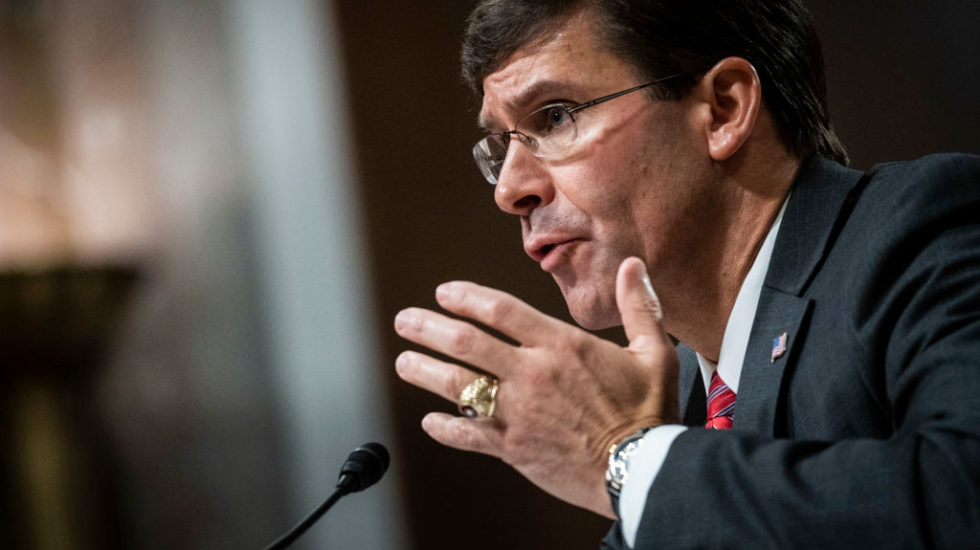Only hours after Defense Secretary Mark Esper warned that more attacks on American forces in the Middle East by Iran or its proxies might come soon, a U.S. airstrike at the Baghdad airport seemed likely to trigger precisely that.
The suspected drone strike hit a vehicle carrying a senior Iranian military official, killing him.
Iraqi state television identified him as Qassem Soleimani, the Washington Post reported. The newspaper characterized Soleimani as “Iran’s most revered military leader.” He commanded Quds Force, a special unit that reports directly to Iran’s supreme leader, Ayatollah Khamenei.
Iran-backed Shiite militias in Iraq quickly blamed the the U.S. for his death.
There was no immediate confirmation from the Pentagon, but David Martin, veteran Pentagon reporter for CBS News, reported that it was a U.S. drone, and Thursday night Esper himself confirmed it.
Newsweek reported that Trump signed off on the strike Thursday morning.
In that light, the words of warning Esper chose at a news conference on Thursday seemed sharply relevant.
“We will take preemptive action … to protect American forces and protect American lives,” Esper told reporters. “The game has changed, and we’re prepared to do what is necessary” to defend U.S. interests and personnel in the region.
“Do I think they may do something? Yes. And they will likely regret it,” he said.
Esper’s comments Thursday followed the Dec. 31 attack on the U.S. embassy in Baghdad by thousands of members of an Iraqi Shiite militia backed by Iran who were angered by an acknowledged U.S. airstrike that killed more than two dozen militiamen.
“Esper’s comments … reflect how the storming of the embassy may have set off one of one of the biggest foreign policy crises of the Trump presidency,” Axios reported.
The two-day siege ended Wednesday after Esper ordered hundreds of troops to the Iraqi capital to reinforce Marines guarding the embassy. No serious injuries were reported, but the embassy compound suffered significant damage.
Esper, a former vice president of Raytheon, a major U.S. defense contractor, also appeared Thursday on MSNBC with host Andrea Mitchell. She noted that while President Trump has repeatedly threatened military action against Iran — once declaring that “we’re locked and loaded” — no such action has been ordered.
Yet the presence of U.S. forces remains a significant factor in Iraq, and Esper says they won’t be leaving any time soon.
“We are there, of course, as guests of Iraq,” he told Mitchell. “We’re there to ensure the enduring defeat the ISIS. We helped the Iraqis do that. And we remain there to train, advise, and assist them. We have full respect for Iraq’s sovereignty and what we want to see is an independent, secure, stable Iraq.”
It’s important, Esper said, not to label the current situation “a United States versus Iran” issue.
“It’s really Iran versus the world,” he said. “It’s Iranian bad behavior that’s been going on now for nearly 40 years. Again, it’s the support of proxy groups from Africa, Lebanon, Yemen, Iraq, Afghanistan.”
Iran, Esper said, “needs to become a normal country.”



